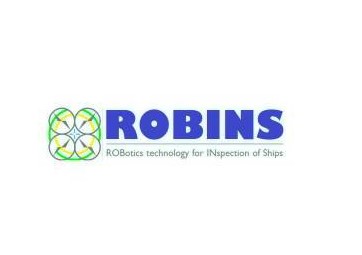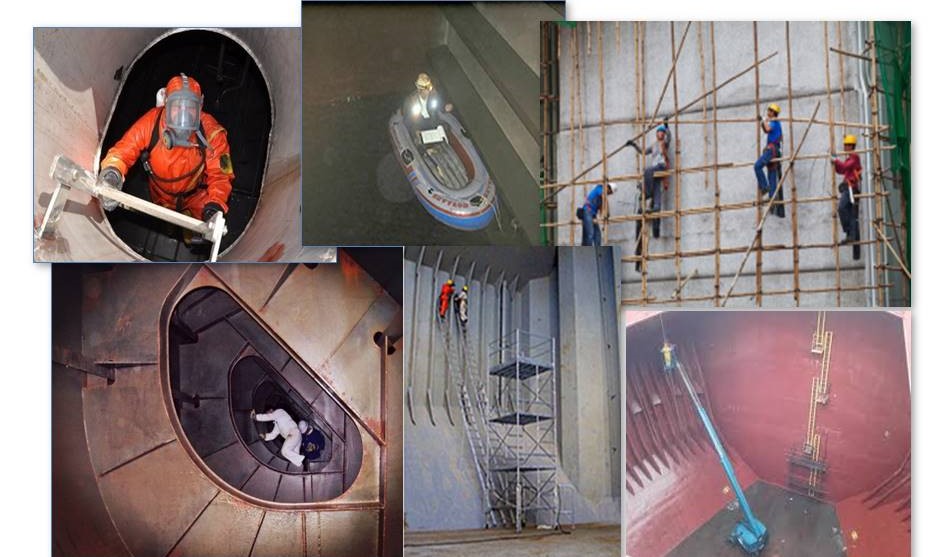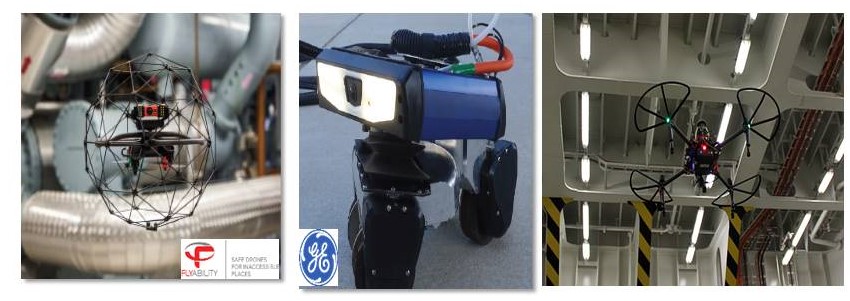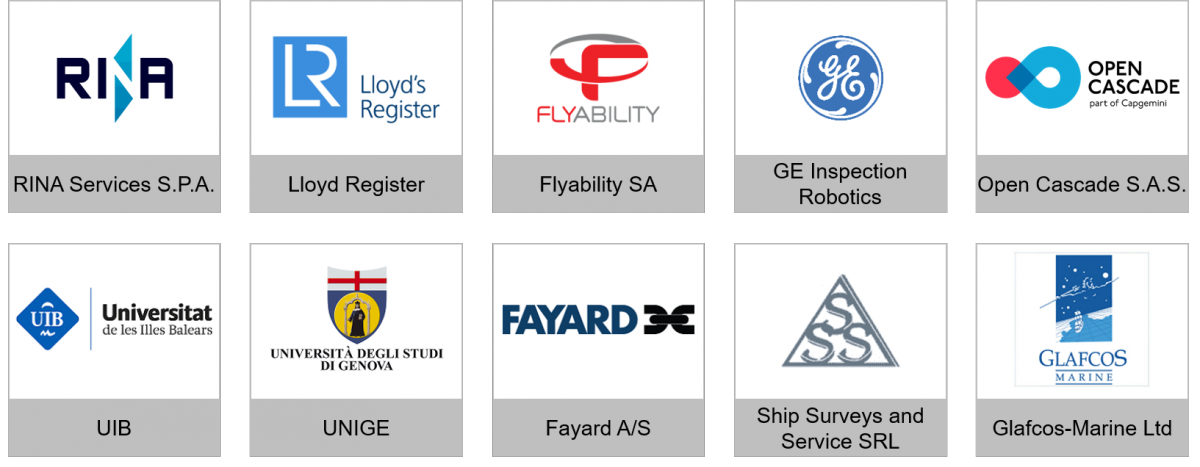OPEN CASCADE brings its expertise to robotic inspection of ships within ROBINS project

ROBINS (ROBotics technology for INspection of Ships) is a collaborative project which was initiated in January 2018 by RINA S.p.A. within Horizon 2020 EU Research and Innovation programme of the European Commission. It is aimed at developing of technology and regulations for usage of robotic systems (drones, crawlers) for inspection of ship structures.
Every ship on the ocean needs a class approval to travel and passes regularly through the inspection procedure. The objective of a ship inspection is to verify the structural strength and integrity of essential parts of the ship’s hull and its appendages, and/or the reliability and function of the propulsion and steering systems, power generation and those other features and auxiliary systems that have been built into the ship.

Traditional organization of inspections requires physical access of a human surveyor to each structural element to be inspected. This often involves complex means of access, is dangerous and time consuming, and in overall brings significant risks and expenses.

ROBINS consortium members share their expertise and develop ad-hoc solutions to facilitate robotic systems penetrating and moving in confined spaces to replace humans. In this context the surveyor obtains all necessary information by means of devices. It is worth mentioning that ROBINS is not the pioneer in remote inspection technique: for example, similar approach is used in underwater inspections of hull in lieu of dry-docking by means of CCTV, when authorized divers get instructions from hull specialists via monitors.
Being one of the partners of the ROBINS project, Open Cascade is developing 3D reconstruction and visualization software tools. The challenge is that the data collected by robots in cluttered spaces (video footages and images) usually have poor quality. The collected images should be processed to build consistent models of the scanned environment which can be represented as a combination of CAD models, point clouds, textured meshes, photos, videos, and annotations, allowing shipboard equipment inspection and defects recognition. The software offers the possibility to navigate easily in the virtual space and access all the information associated with any point of interest. The level of realism in the representation of inspected spaces should allow the user to feel a satisfactory degree of presence in the virtual space.

“It is necessary to say that when it comes to the fields of application for RAS technologies, it is not limited to ships inspections only. Some industrial applications are already under development and can be used in such domains as Energy, Oil and Gas industry. The main requirement that remote inspection faces is that the quality and accuracy of data gathered by RAS should be equivalent to inspection carried out by direct human intervention, at least in a selected set of operational scenarios. We strongly believe that more and more industries will be involved in remote inspecting in the nearest future, and we will be able to use our 3D data processing expertise to help big companies and institutions to facilitate their inspection operations, - Mikhail Kazakov, Managing Director of Open Cascade shares his optimistic vision of the future.
PROJECT CONSORTIUM
ROBINS puts together different backgrounds and disciplines. The Consortium includes partners from robotics and software industry (FLY, GEIR, OCC), marine industry (SSS, FAY, GLAF), classification societies (RINA, LR) and academia (UIB, UNIGE).

Find more information on the project at its web site: https://www.robins-project.eu/


